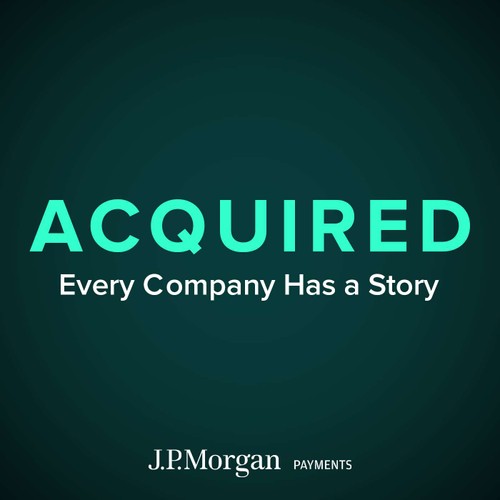
 Acquired
Acquired Holiday Special 2022
Holiday Special Recording
- Ben Gilbert and David Rosenthal record a holiday special.
- They discuss the past year's episodes and the state of the tech ecosystem.
Taylor Swift's Internet Stardom
- Taylor Swift's immense popularity reflects her status as an internet rockstar.
- The internet amplifies demand and creates larger markets.
Internet's Impact on Music
- The internet enables niche artists to thrive while also amplifying mainstream popularity.
- This increased distribution explains Taylor Swift's massive reach compared to earlier artists like the Beatles.






















Cozy up to the fire and join Acquired as we do our annual strategic review of the show and our business “in public”. We recap our perspectives on Acquired’s big moments from the past year, a bit of commentary on the current state of the tech ecosystem, and what lies ahead for us in 2023. Plus as always at the holidays, we do an extended carve out session on our favorite things from the past year. Huge thank you to all of you for making 2022 an amazing year here in Acquired-land, and here’s to even bigger and better things to come in 2023!
Sponsors:
- WorkOS: https://bit.ly/workos25
- Sierra: https://bit.ly/acquiredsierra
- Sentry: https://bit.ly/acquiredsentry
- Anthropic: https://bit.ly/acquiredclaude25
More Acquired!
- Get email updates with hints on next episode and follow-ups from recent episodes
- Join the Slack
- Subscribe to ACQ2
- Merch Store!
© Copyright 2015-2025 ACQ, LLC
Carveouts!:
- Jerry Seinfeld on The Tim Ferriss Show
- Project Hail Mary
- The Psychology of Money
- The Power Law
- Made in America
- Made in Japan
- The Godfather (book)
- Masters of Doom
- Stevie Case vs. the World
- How All this Happened
- Resonant Arc
- All-In
- Founders Podcast
- MKBHD’s Waveform Podcast
- The Verge
- Huberman Lab - What Alcohol Does to your Body
- Smartless
- T-Swift’s Midnights
- Olivia Rodrigo
- Andor
- Black Panther
- Top Gun Maverick
- Everything Everywhere All At Once
- The White Lotus
- The Vow
- Flighty
- Roborock S7 Max
- Apple Keyboard with TouchID
- Elgato AV gear, especially sound panels and the Cam Link 4K
- Capri
Note: Acquired hosts and guests may hold assets discussed in this episode. This podcast is not investment advice, and is intended for informational and entertainment purposes only. You should do your own research and make your own independent decisions when considering any financial transactions.
